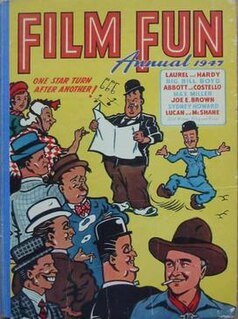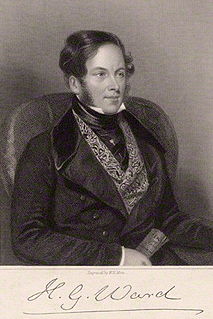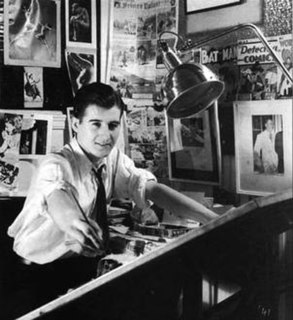
The New Zealand Company, chartered in the United Kingdom, was a company that existed in the first half of the 19th century on a business model focused on the systematic colonisation of New Zealand. The company was formed to carry out the principles devised by Edward Gibbon Wakefield, who envisaged the creation of a new-model English society in the southern hemisphere. Under Wakefield's model, the colony would attract capitalists who would then have a ready supply of labour—migrant labourers who could not initially afford to be property owners, but who would have the expectation of one-day buying land with their savings.

Edward Gibbon Wakefield is considered a key figure in the establishment of the colonies of South Australia and New Zealand. He also had significant interests in British North America, being involved in the drafting of Lord Durham's Report and being a member of the Parliament of the Province of Canada for a short time.

The Vicar of Wakefield, subtitled A Tale, Supposed to be written by Himself, is a novel by Anglo-Irish writer Oliver Goldsmith (1728–1774). It was written from 1761 to 1762 and published in 1766. It was one of the most popular and widely read 18th-century novels among Victorians.

Film Fun was a British celebrity comics comic book that ran from 17 January 1920 to 15 September 1962, when it merged with Buster, a total of 2,225 issues. There were also annuals in the forties and fifties. As the title suggests, the comic mainly featured comic strip versions of people from films from the 1920s to the 1960s.

The George Washington Birthplace National Monument is a national monument in Westmoreland County, Virginia, United States. This site was a colonial tobacco plantation developed by Englishman John Washington in the mid-17th century. John Washington was a great-grandfather of George Washington, general of the Continental Army and first president of the United States of America. George Washington was born in this house on February 22, 1732. He lived here until age three, returning later to live here as a teenager.

Gilbert Wakefield (1756–1801) was an English scholar and controversialist. He moved from being a cleric and academic, into tutoring at dissenting academies, and finally became a professional writer and publicist. In a celebrated state trial, he was imprisoned for a pamphlet critical of government policy of the French Revolutionary Wars; and died shortly after his release.

William Wakefield Baum was an American cardinal of the Catholic Church. He served as Bishop of Springfield-Cape Girardeau (1970–1973) and Archbishop of Washington (1973–1980) before serving in the Roman Curia as Prefect of the Congregation for Catholic Education (1980–1990) and Major Penitentiary (1990–2001). He was elevated to the College of Cardinals in 1976. At the time of his 1980 appointment as Prefect of the Congregation for Catholic Education, he was the highest-ranking American ever in the Church. Baum was a cardinal longer than any other American.

Sir Henry George Ward GCMG was an English diplomat, politician, and colonial administrator.

George Roussos, also known under the pseudonym George Bell, was an American comic book artist best known as one of Jack Kirby's Silver Age inkers, including on landmark early issues of Marvel Comics' Fantastic Four. Over five decades, he created artwork for numerous publishers, including EC Comics, and he was a staff colorist for Marvel Comics.

British colonisation of South Australia describes the planning and establishment of the colony of South Australia by the British government, covering the period from 1829, when the idea was raised by the then-imprisoned Edward Gibbon Wakefield, to 1842, when the South Australia Act 1842 changed the form of government to a Crown colony.
Notable events of 1942 in comics. See also List of years in comics.

The Vigilante is a 1947 American Western film serial directed by Wallace Fox. The 33rd serial released by Columbia Pictures, it was based on the comic book cowboy Vigilante, who first appeared in Action Comics, published by DC Comics. It stars Ralph Byrd, well known for his central role in the Dick Tracy serials. It was his last serial appearance.

Wakefield Cathedral, or the Cathedral Church of All Saints in Wakefield, West Yorkshire, England, is a co-equal Anglican cathedral with Bradford and Ripon Cathedrals, in the Diocese of Leeds and a seat of the Bishop of Leeds. Originally the parish church, it has Anglo Saxon origins and, after enlargement and rebuilding, has the tallest spire in Yorkshire. Its 247-foot (75 m) spire is the tallest structure in the City of Wakefield. The cathedral was designated a Grade I listed building on 14 July 1953.
The 1908–09 Northern Rugby Football Union season was the 14th season of rugby league football.

Wakefield Castle, Lowe Hill or Lawe Hill was a castle built in the 12th century on a hill on the north side of the River Calder near Wakefield, England. Its name derives from the Anglo Saxon hlaew meaning a mound or cairn, possibly a burial mound or barrow. The mound, situated a quarter mile from the river, was separated from the town by flat swampy land and was seen as a good site for a fortification.

The 1936 United States Senate election in New Hampshire took place on November 3, 1936. Incumbent Republican Senator Henry W. Keyes did not run for re-election.
Wakefield is an English surname. Wakefield is the 1,356th most common surname in Great Britain, with 7,767 bearers. It is most common in the West Midlands, where it is the 257th most common surname, with 3,260 bearers. Other concentrations include, the City of Leeds, (237th,1,668), Devon, (457th,1,684), and Kent, (810th,1,614). Notable people with the surname include:

The Capture of Wakefield occurred during the First English Civil War when a Parliamentarian force attacked the Royalist garrison of Wakefield, Yorkshire. The Parliamentarians were outnumbered, having around 1,500 men under the command of Sir Thomas Fairfax, compared to the 3,000 led by George Goring in Wakefield, but successfully stormed the town, taking roughly 1,400 prisoners.
The Bishop of Wakefield was the ordinary of the now-defunct Church of England Diocese of Wakefield in the Province of York. The diocese was based in Wakefield in West Yorkshire, covering the City of Wakefield, Barnsley, Kirklees and Calderdale. The see was centred in the City of Wakefield where the bishop's seat (cathedra) was located in the Cathedral Church of All Saints, a parish church elevated to cathedral status in 1888.
William Augustine Washington was a Virginia planter and officer who served one term in the Virginia House of Delegates representing Westmoreland County, as well as terms as colonel of the county militia and as the county sheriff, before moving to the newly established District of Columbia. The son of the half-brother of President George Washington, he was also one of the seven executors of the former President's estate.